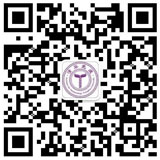Dr. Xin Lin and his colleagues have recently reported that JNK1 negatively regulates immune responses against Candida albicans infection by inhibiting CD23 expression on the journal of Nature Medicine.
Opportunistic fungal infections are a leading cause of death among immune-compromised patients, and there is a pressing need to develop new antifungal therapeutic agents because of toxicity and resistance to the antifungal drugs currently in use. Although C-type lectin receptor- and Toll-like receptor-induced signaling pathways are key activators of host antifungal immunity, little is known about the mechanisms that negatively regulate host immune responses to a fungal infection. In this report, Dr. Lin's group found that JNK1 activation suppresses antifungal immunity in mice. They showed that JNK1-deficient mice had a significantly higher survival rate than wild-type control mice in response to Candida albicans infection, and the expression of JNK1 in hematopoietic innate immune cells was critical for this effect. JNK1 deficiency leads to significantly higher induction of CD23, a novel C-type lectin receptor, through NFATc1-mediated regulation of the CD23 gene promoter. Blocking either CD23 upregulation or CD23-dependent nitric oxide production eliminated the enhanced antifungal response found in JNK1-deficient mice. Notably, JNK inhibitors exerted potent antifungal therapeutic effects in both mouse and human cells infected with C. albicans, indicating that JNK1 may be a therapeutic target for treating fungal infection.
Dr. Xueqiang Zhao and the PhD student Yahui Guo in the program of Tsinghua-Peking Center for Life Sciences are co-first authors of this paper. This work was partially supported by grants from the National Natural Science Foundation of China and National Institutes of Health.
The original paper could be found in the following link: https://www.nature.com/nm/journal/v23/n3/full/nm.4260.html

Copyright © 2017 Institute for Immunology Tsinghua University
Contact Address: Room D302, Medical Science Building, Tsinghua University, Beijing 100084, China
Tel: (86) 10-62776420 Fax: (86) 10-62776420
